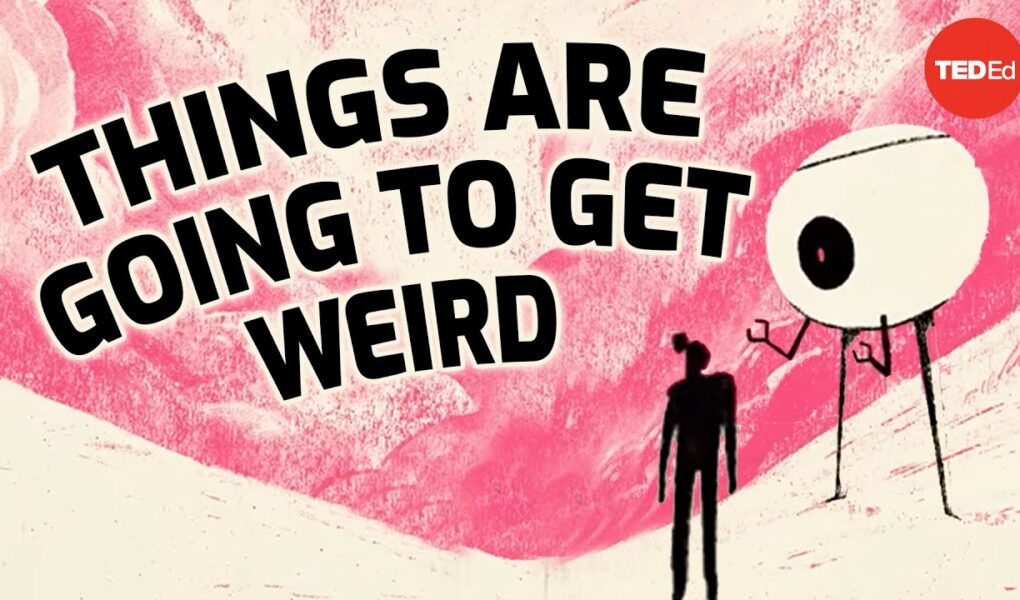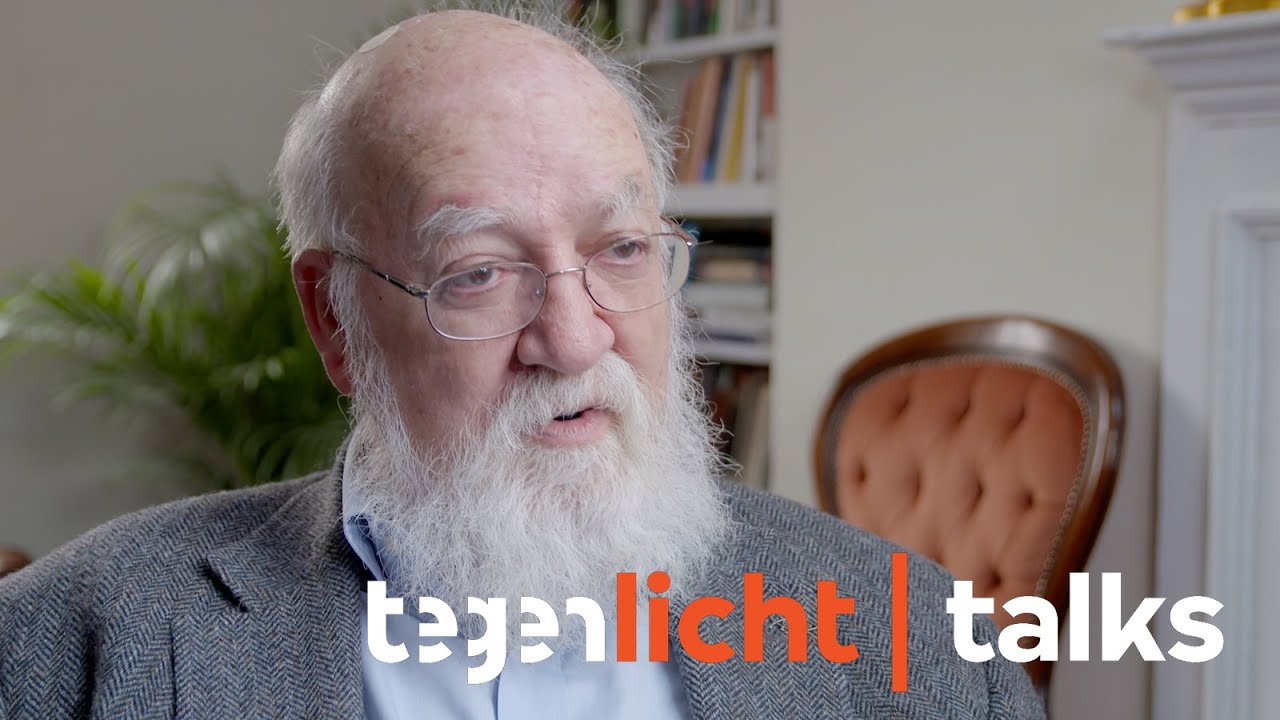TED-Ed
Explore the current limitations of artificial intelligence and the possibility of creating human-compatible technology.
—
In the coming years, artificial intelligence is probably going to change your life— and likely the entire world. But people have a hard time agreeing on exactly how AI will affect our society. Can we build AI systems that help us fix the world? Or are we doomed to a robotic takeover? Explore the limitations of artificial intelligence and the possibility of creating human-compatible technology.
This video is based on interview excerpts from the Radio Davos Podcast. The episode is called, “The promises and perils of AI – Stuart Russell on Radio Davos”.
Listen to the full episode here: https://www.weforum.org/agenda/2022/01/artificial-intelligence-stuart-russell-radio-davos
Directed by Christoph Sarow, AIM Creative Studios.
This video made possible in collaboration with World Economic Forum
Learn more about how TED-Ed partnerships work: https://bit.ly/TEDEdPartners
Support Our Non-Profit Mission
———————————————-
Support us on Patreon: http://bit.ly/TEDEdPatreon
Check out our merch: http://bit.ly/TEDEDShop
———————————————-
Connect With Us
———————————————-
Sign up for our newsletter: http://bit.ly/TEDEdNewsletter
Follow us on Facebook: http://bit.ly/TEDEdFacebook
Find us on Twitter: http://bit.ly/TEDEdTwitter
Peep us on Instagram: http://bit.ly/TEDEdInstagram
———————————————-
Keep Learning
———————————————-
View full lesson: https://ed.ted.com/lessons/things-are-going-to-get-weird
Dig deeper with additional resources: https://ed.ted.com/lessons/things-are-going-to-get-weird#digdeeper
Animator’s website: http://aimcreativestudios.com
Music: https://soundcloud.com/aim-music
———————————————-
Thank you so much to our patrons for your support! Without you this video would not be possible! Mark Morris, Misaki Sato, EdoKun, SookKwan Loong, Bev Millar, Lex Azevedo, Michael Aquilina, Jason A Saslow, Yansong Li, Cristóbal Moenne, Dawn Jordan, Prasanth Mathialagan, Samuel Doerle, David Rosario, Dominik Kugelmann – they-them, Siamak Hajizadeh, Ryohky Araya, Mayank Kaul, Christophe Dessalles, Heather Slater, Sandra Tersluisen, Zhexi Shan, Bárbara Nazaré, Andrea Feliz, Victor E Karhel, Sydney Evans, Latora, Noel Situ, emily lam, Sid, Niccolò Frassetto, Mana, I’m here because of Knowledge Fight Facebook group., Linda Freedman, Edgardo Cuellar, Jaspar Carmichael-Jack, Michael Burton, VIVIANA A GARCIA BESNE, The Vernon’s, Olha Bahatiuk, Jesús Bíquez Talayero, Chels Raknrl, Sai Pranavi Jonnalagadda, Stuart Rice, Jing Chen, Vector-Dopamine math, Jasper Song, Giorgio Bugnatelli, Chardon, Eddy Trochez and OnlineBookClub.org.
Source




i my teacher watched this in reading class
Its not about when, rather how far we'll go, how much power we'll eventually give AI over our lives. Humanity has never really been great at setting the limit.
The AI not able to work if no one stir the system 🙄
robots have a system of checks and balances just like i might get a bad thought and stop myself. multiple ai’s work together to find the right solution. this so called “problem” is pretty ridiculous especially considering that the origin of man is ai.
The guy's voice is pleasantly disturbing.
AI do not have a soul, AI do not have feelings, AI do not have a spirit, AI will never be perfect.
Humans have emotions and that make us able to feel thing as love, hapiness and sadness.
Appreciating the insights? I'd propose a book that shares this content's essence for further reading. "From Bytes to Consciousness: A Comprehensive Guide to Artificial Intelligence" by Stuart Mills
My plans for future ended this on 1st january 2030 jump from plane
without glider
We are the unique idiots whom are creating synthetic beings to replace to us, In an already crowded world, I can’t believe how naive we are.
"I believe we are meant to be like Jesus in our hearts and not in our flesh. But be careful of AI, for it is just our flesh and that is it. It knows only things of the flesh (our fleshly desires) and cannot comprehend things of the spirit such as peace of heart (which comes from obeying God's Word). Whereas we are a spirit and we have a soul but live in the body (in the flesh). When you go to bed it is your flesh that sleeps but your spirit never sleeps (otherwise you have died physically) that is why you have dreams. More so, true love that endures and last is a thing of the heart (when I say 'heart', I mean 'spirit'). But fake love, pretentious love, love with expectations, love for classic reasons, love for material reasons and love for selfish reasons that is a thing of our flesh. In the beginning God said let us make man in our own image, according to our likeness. Take note, God is Spirit and God is Love. As Love He is the source of it. We also know that God is Omnipotent, for He creates out of nothing and He has no beginning and has no end. That means, our love is but a shadow of God's Love. True love looks around to see who is in need of your help, your smile, your possessions, your money, your strength, your quality time. Love forgives and forgets. Love wants for others what it wants for itself. Take note, love works in conjunction with other spiritual forces such as faith and patience. We should let the Word of God be the standard of our lives not AI. If not, God will let us face AI on our own and it will cast the truth down to the ground, enslave us and make us worship it. We can only destroy ourselves but with God all things are possible. God knows us better because He is our Creater and He knows our beginning and our end. Our prove text is taken from the book of John 5:31-44, 2 Thessalonians 2:1-12, Daniel 7-9, Revelation 13-15, Matthew 24-25 and Luke 21. Let us watch and pray… God bless you as you share this message to others."
The art in this video is great
I just watched Dust "Slaughterbots" ooom❤
I think living with my parents forever is inevitable at this point. No point in getting a job if competition everywhere becomes as cutthroat as Hollywood.
Not a communist but we should have a universal income if AI takes an exoorbanant amount of jobs.
just 10 months ago… so outdated now 😀 lol
Imagine 🤣🤣 AI tryna kill me just to deliver a cup of coffee
It'll happen in the 2050's!
🎯 Key Takeaways for quick navigation:
00:06 🤖 The introduction discusses the impact of artificial intelligence on the world, with a focus on the challenges and uncertainties surrounding AI.
– AI's potential to change lives and the world.
– The difficulty in agreeing on how AI will shape the future.
00:35 🎯 The section explores the difference between human and AI objectives, emphasizing the need for AI systems to consider broader consequences and context.
– Contrast between human and AI objectives.
– Challenges of giving AI fixed objectives.
– The importance of considering broader consequences in AI behavior.
02:28 🧠 This section delves into the idea that AI systems should acknowledge their uncertainty about objectives to avoid undesirable outcomes and behaviors.
– The role of uncertainty in controlling AI systems.
– The risk of psychopathic behavior in AI with certain objectives.
02:59 ⚙️ The discussion shifts to the impact of general-purpose AI on the job market and society, drawing historical parallels.
– The concept of technological unemployment.
– Automation in e-commerce warehouses.
– The potential job displacement due to advanced AI.
04:23 📚 This section emphasizes the importance of humans understanding and teaching future generations about technology, rather than becoming overly dependent on machines.
– The risks of complete dependence on machines.
– The need for continued human understanding and education.
– The analogy with the movie "WALL-E."
05:20 ⏳ The final section discusses the uncertain timeline for achieving general-purpose AI and the need for extraordinary advancements.
– The difficulty in predicting the arrival of general-purpose AI.
– Differing expert opinions on the timeline.
– The requirement for remarkable breakthroughs in AI development.
Made with HARPA AI
God, please 🙏 forgive us for our sins and thank you for this slice of pizza 🍕 Amen
The WEF and all associates of it are completely unreliable but thanks for your worthless opinion. We won't become cattle though.
AI will not change the world. It will bring it to it's END. Why do you think they hate humans? Because this technology originates with them. Pay attention to what they are telling you. The truth is hidden and not obvious but they are saying it bc they must.
analog mechines are still the way to go, as these machines that can sabotage or betray human commands and orders, not for the better even.
The Transformative Power of Artificial Intelligence: Shaping Our Future
Artificial Intelligence (AI) is no longer a futuristic concept confined to science fiction; it has become an integral part of our present and holds the key to shaping our future in ways unimaginable just a few decades ago. As AI technologies continue to advance at an unprecedented pace, their impact on various aspects of human life is becoming increasingly profound. From revolutionizing industries to influencing social dynamics, AI is poised to bring about transformative changes that will redefine the way we live, work, and interact with the world.
Economic Transformation:
AI is set to revolutionize the global economy by reshaping industries and job markets. Automation powered by AI has the potential to increase efficiency and productivity across various sectors, leading to economic growth. However, this comes with the challenge of job displacement, as routine tasks are increasingly automated. The future of work will require a shift towards skills that complement AI technologies, such as creativity, critical thinking, and emotional intelligence.
Healthcare Revolution:
AI is making significant strides in the healthcare industry, offering innovative solutions for diagnosis, treatment, and personalized medicine. Machine learning algorithms can analyze vast amounts of medical data, leading to more accurate diagnoses and treatment plans. AI-driven robotic surgeries, predictive analytics, and drug discovery are just a few examples of how AI is transforming healthcare, ultimately improving patient outcomes and reducing costs.
Smart Cities and Infrastructure:
The concept of smart cities, where AI is integrated into urban infrastructure, is gaining momentum. AI can optimize traffic flow, enhance energy efficiency, and improve public services. Intelligent systems can analyze data in real-time to address urban challenges, leading to more sustainable and livable cities. From smart transportation to efficient waste management, AI will play a pivotal role in building the cities of the future.
Education and Learning:
AI has the potential to revolutionize education by providing personalized learning experiences. Intelligent tutoring systems can adapt to individual student needs, making education more accessible and effective. Additionally, AI can assist in automating administrative tasks, allowing educators to focus more on student engagement and creativity. The future of education will likely see a blend of traditional teaching methods and AI-driven technologies.
Ethical Considerations and Regulation:
As AI becomes more ingrained in our daily lives, ethical considerations and the need for regulation become paramount. Issues related to privacy, bias in algorithms, and the responsible use of AI demand careful attention. Striking a balance between innovation and ethical considerations will be crucial in ensuring that AI benefits society as a whole.
Social Dynamics and Human Interaction:
The rise of AI introduces new dynamics in human relationships and social interactions. From AI-powered chatbots to virtual assistants, our interactions with machines are becoming more natural and integrated. However, questions about the impact on social skills, empathy, and the potential for isolation in a technologically advanced society must be considered.
Conclusion:
The future shaped by AI is one of immense possibilities and challenges. As we embrace the transformative power of AI, it is essential to navigate the ethical and societal implications carefully. By fostering innovation, investing in education, and establishing responsible regulations, we can harness the potential of AI to create a future that is not only technologically advanced but also inclusive, sustainable, and beneficial for all of humanity. The journey into this AI-driven future requires a thoughtful and collaborative effort to ensure that the transformative power of AI is harnessed for the greater. https://homedigitaloffice.pl/_blog/58-Co_zmieni_w_swiecie_AI.html
What is AI is an ancient technology ?
I'm not sure if AI will ever understand empathy.
Hopefully A.I. make cigarettes bigger😁